If a chick seems to have trouble standing with a twisted neck, it is probably wry neck chicken — a health issue many chicken farmers encounter. This complete guide to wry neck chicken will teach you all there is to know about this health problem.
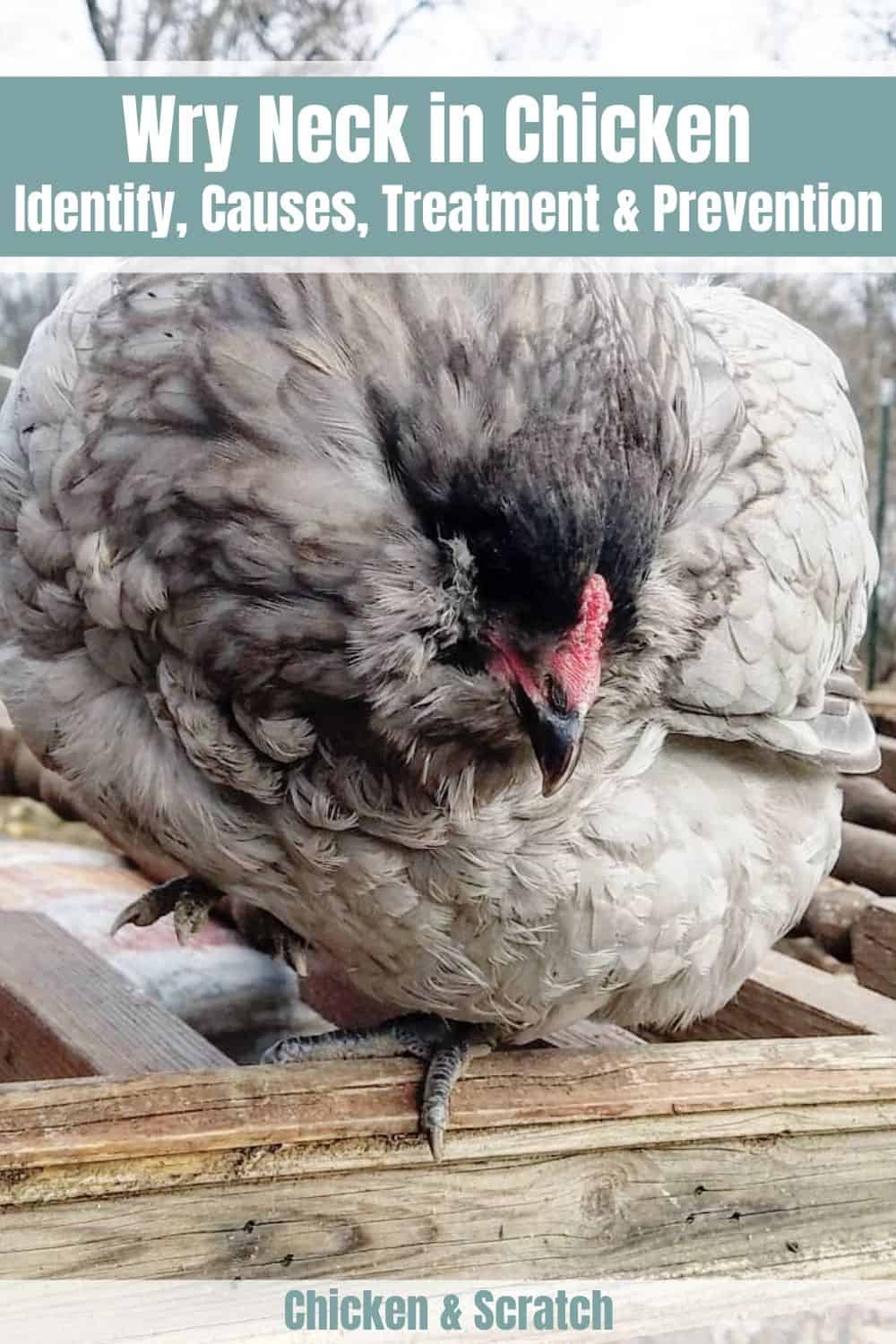
This article will cover
- What is wry neck in chickens?
- What causes wry neck in chickens?
- Is wry neck contagious?
- Can a chicken live with wry neck?
- Wry Neck Treatment
- How long does it take to treat wry neck in chickens?
- How to prevent wry neck chicken?
What is Wry Neck in Chickens?
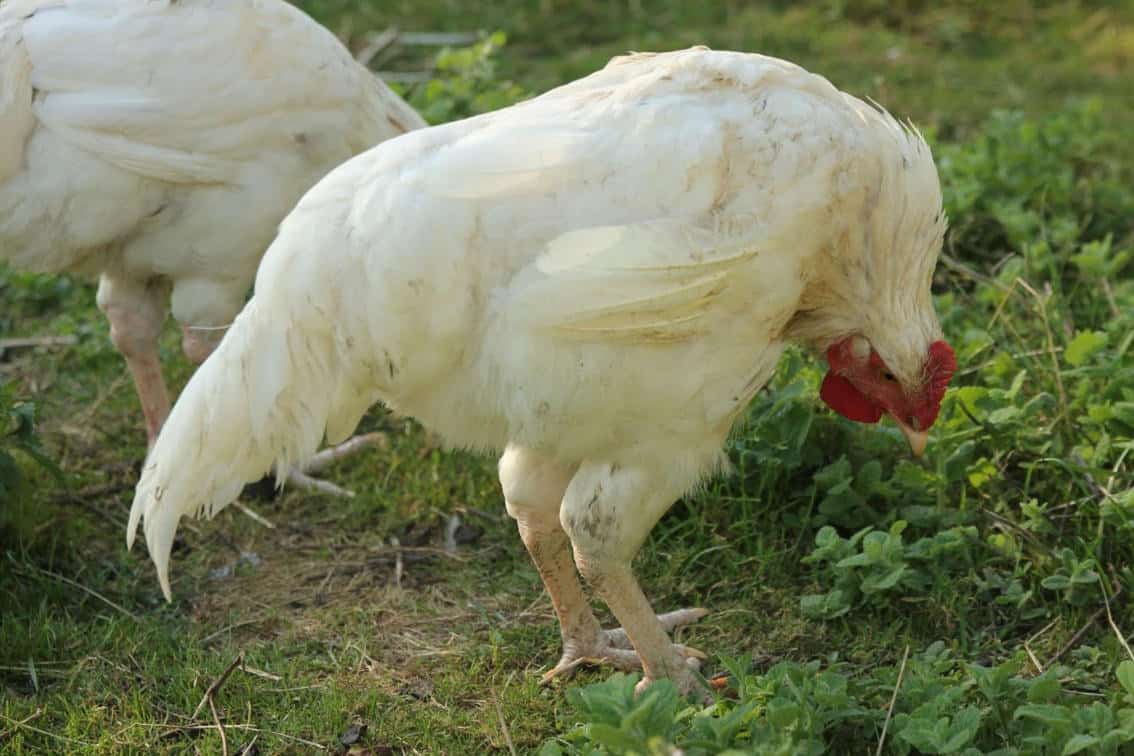
Medically called torticollis, wry neck in chickens is a clinical sign that is described as having a head and neck position that is not normal.
People often call this a twisted neck, crook neck, or stargazing. This is because chickens that suffer from a wry neck have an abnormal neck form that makes them appear to look backward constantly.
This problem is primarily seen in chicks and ducklings and is less often in adult chickens. Wry neck chickens usually have difficulty holding their heads up, thus, also affecting their balance and ability to stand.
While this is a problem you want to avoid, it is treatable especially when detected and addressed early on.
To help you visualize, here is a video of a chicken with a wry neck.
What Causes Wry neck in Chickens?
Some chicken farmers debate the exact cause of wry neck in chickens. Several factors can lead to this abnormal neck position based on wry neck chicken cases.
Vitamin E Deficiency
Often, studies and research point to a deficiency in vitamin E as the leading cause of wry neck in chickens. Vitamin E is vital for maintaining the proper functioning of bodily processes.
On top of a deficiency in vitamin E, not having enough selenium in the body also contributes to wry neck. Selenium is a mineral that works together with vitamin E to help your chicken’s body function properly.
A poor diet with insufficient vitamin E and selenium can lead to wry neck chickens. This is why giving your flock a diet that consists of all the vitamins and minerals necessary for growth and development is essential.
Genetics
Another explanation for the wry neck is chicken genetics. There are instances where the chick’s parents have either vitamin E deficiency or genetic problems. In effect, these are passed on to their offspring.
There are also cases where chickens are born with genetic problems which may manifest through wry necks.
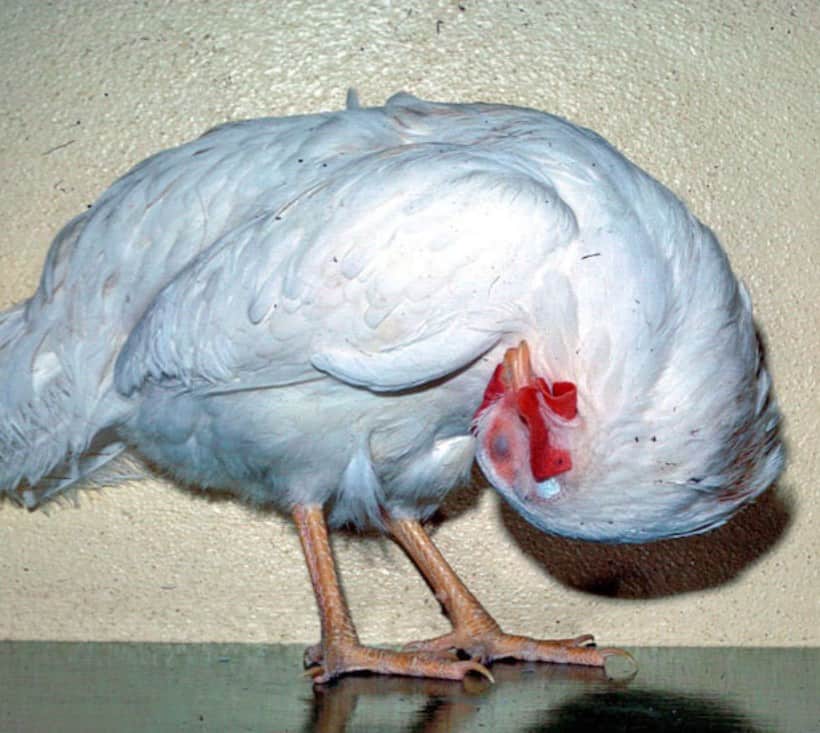
Exposure to Toxic Substances
A wry neck can be one of the effects of ingestion or exposure to toxic substances. When exposed to toxins, chickens may get adverse effects such as lack of balance, vomiting, and a wry neck.
Head Injury
Though it is still up for debate, there are claims that the Silkie and Polish breeds of chickens are more prone to a wry neck. This is due to this variety having vaulted skulls or an opening at the top of the skull.
Many say this is a misconception, though, stating that a wry neck is an issue that affects all breeds of chickens.
Is wry neck contagious?
No, wry neck in chickens is not contagious. It can be caused by a variety of environmental and nutritional factors and should be treated through supportive care rather than isolation measures.
Looking at the different causes that lead to wry neck, it’s safe to say that wry neck is not at all contagious. Your affected chicken will not be able to pass on the disease to the rest of the flock.
However, if the deficiency in vitamin E is the cause of your chicken’s case, you should review and check the diet you are giving your flock. Though it might be an isolated case, your flock may not get enough vitamin E from their diet.
Can a chicken live with wry neck?
Having wry neck can be a challenge for young chicks especially since they are still exploring the world. To answer the question, yes, a chicken can live with a wry neck.
However, the unaddressed condition can bring so much trouble to the little one.
For one, a wry neck can cause difficulty standing up, let alone eating and doing daily activities. Wry neck chickens that are not treated right away get fatally ill or die because they cannot receive the nutrition they need as they cannot eat or drink properly.
Poor nutrition will make these chickens fragile. As a result, they will more likely be hit or trampled on by stronger chickens of the flock. It’s best to start treatment the soonest you notice signs of a wry neck.
Wry Neck Treatment
Seeing your chick or adult chicken dealing with a wry neck is disheartening for chicken farmers. The silver lining, though, is that wry neck is completely treatable, especially when you can detect and address it right away.
Isolate the Affected Chicken
Firstly, you must take your wry neck chicken away from the rest of the flock. The other chickens might overwhelm the affected one. In some cases, they might step on or hit the hurt chicken and may cause further harm.
However, if the disease is not isolated and apparent through the flock, make sure to better their environment and diet.
Boost Vitamin E Intake
Secondly, you need to boost your chicken’s vitamin E intake. Regardless of the cause of the bird’s wry neck, the same treatment is given.
Look for food supplements for chickens that have high vitamin E content. These often come in powder or capsule form. If you can find ones with selenium, it is even better. If you are unavailable to find a supplement that has both, you can opt for a selenium tablet.
You should give these dietary supplements to the affected chicken two to three times daily by mixing them with its chicken feed.
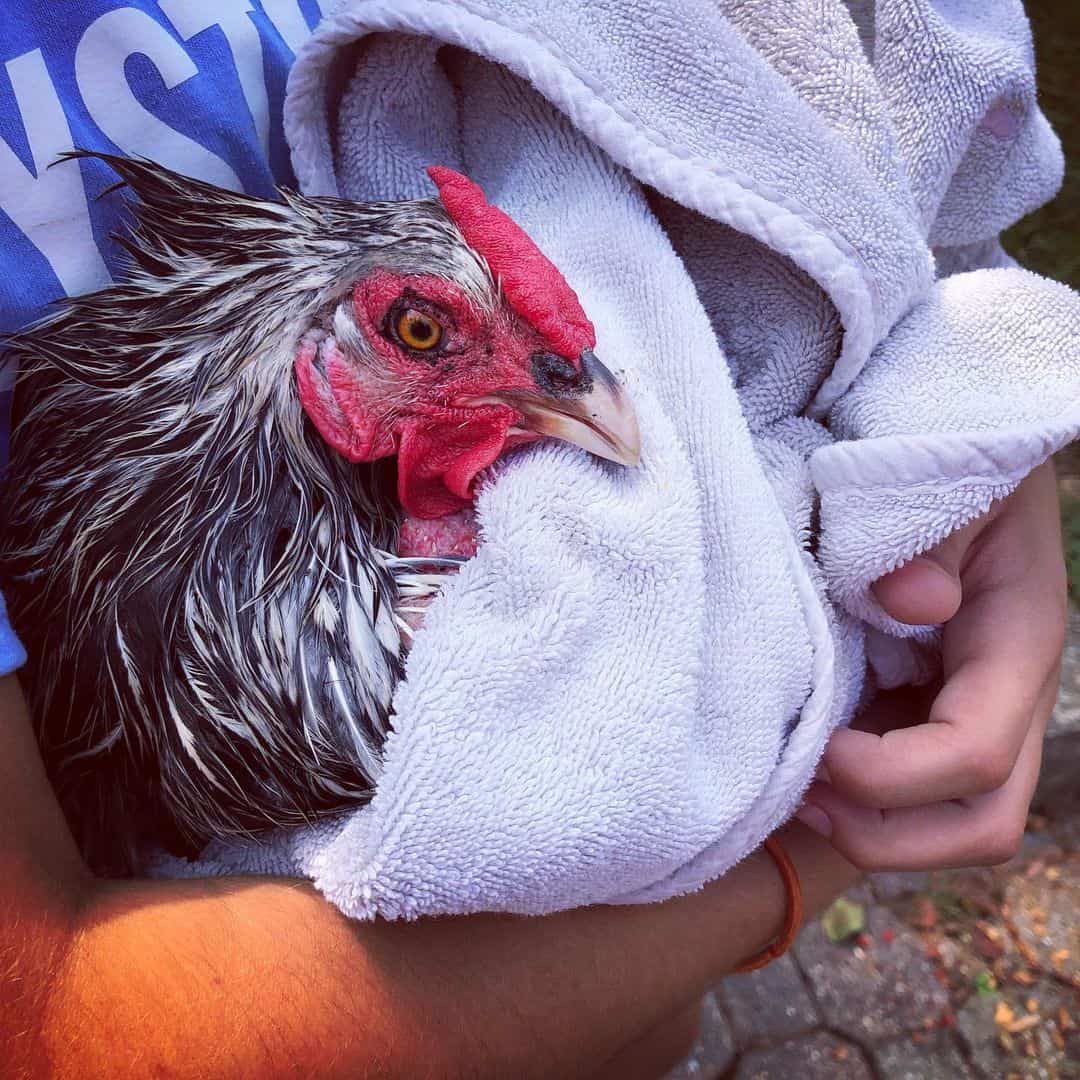
Assist the Affected Chicken
Because wry-neck chickens have problems with their neck, pecking at their food might be difficult for them.
Your role as the owner is to help your chicken eat and drink. Assist your chicken by making food and water more accessible. You may also bring its food closer to its beak with the use of a spoon.
Monitor Condition and Check for Improvement
Closely monitor your wry neck chicken to see if there are improvements in the neck problem. Healing differs from one chicken to another and depends on different factors, such as the severity of the wry neck problem, the chicken’s health, and age.
If you want to avoid supplements and use natural produce, you can feed your chicken food rich in vitamin E, such as greens, spinach, and asparagus, to name a few.
Watch this video on how a chicken farmer was able to treat wry neck chicken.
How long does it take to treat wry neck in chickens?
If you are facing the wry neck chicken problem, you may ask: How long does a wry neck last?
A wry neck only goes away if you address it and give your chicken the proper treatment. Once you administer the treatment through vitamin E intake, you have to wait and see how your chicken’s body reacts to it.
There are cases where improvement starts to show as early as 24 hours. However, this is not guaranteed as different factors come to play. You can see a better condition in days, weeks, or even months into the treatment.
As the chicken owner, you need patience and determination in treating the wry neck. Results may only be visible after some time, so you must be consistent with your plan of action or treatment.
How do I prevent wry neck chicken?
Regardless of the health issue, the statement that prevention is better than cure rings true. Not only does it save you money and time, but it also spares you from the stress and hassle of going through treatment.
The best way to prevent wry neck in your chicken is to give it its needed dose of vitamin E. Feel free to seek the advice of your veterinarian or those raising poultry on the vitamins you can use for your chicken.
Ideally, you should give your flock the nutrition they deserve for optimum growth and development. That means putting together chicken feed and other natural foods such as fruits, vegetables, and even meat so they get all the nutrients they need.
Remember, though, that you should give them in moderation when it comes to natural food or treats.
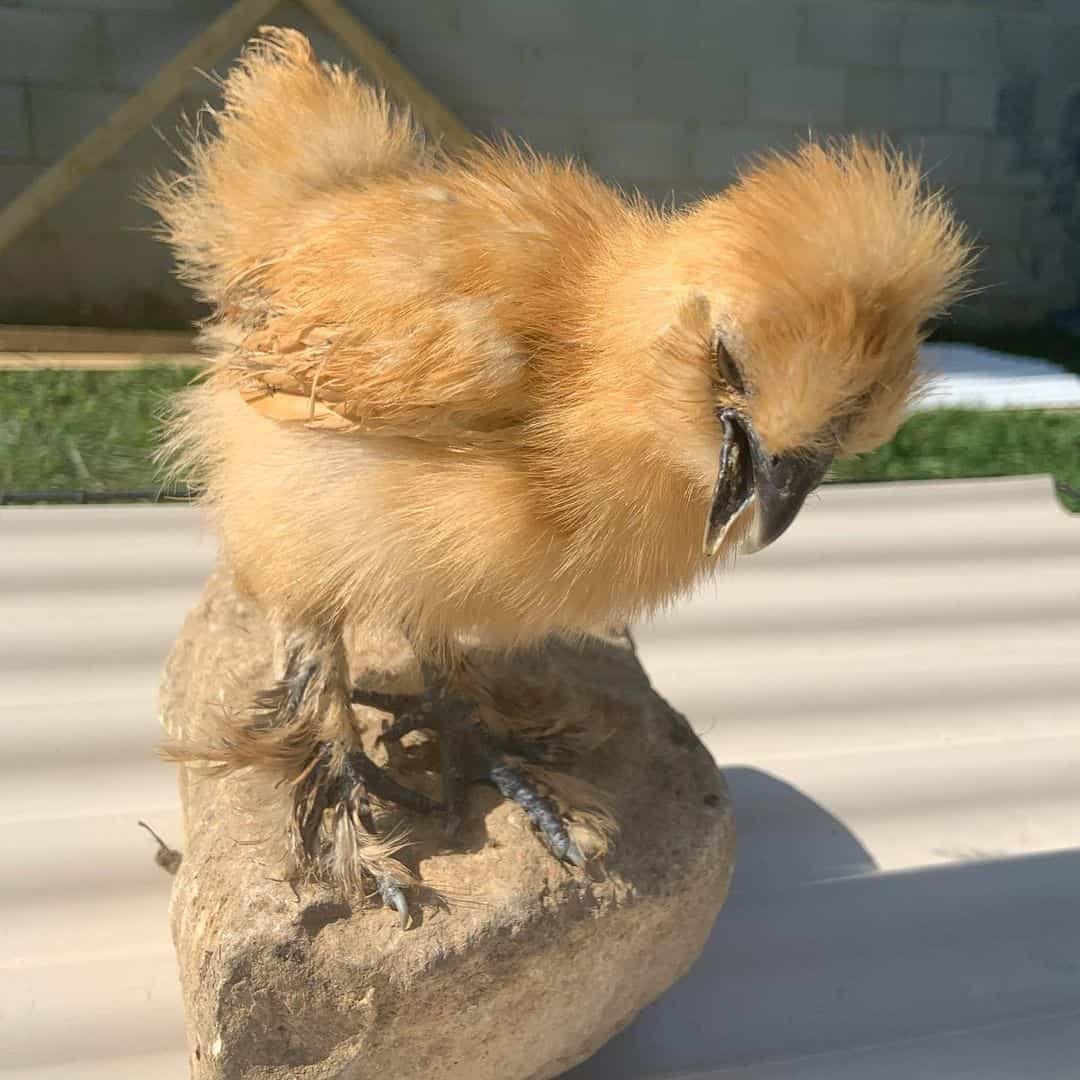
Natural Sources of Vitamin E
There may be supplements readily available in the market, but giving your flock natural foods rich in vitamin E and other vitamins and minerals is undoubtedly a healthy choice.
If you grow a garden, you will have a wide selection of produce that contains vitamin E, which you can give to your chickens.
Many fruits and vegetables are known for being good sources of vitamin E. These are the following:
- Sunflower seeds
- Spinach
- Broccoli
- Avocado flesh
- Greens
- Asparagus
- Fish
You can explore the following herbs, which are known to have a good vitamin E content:
- Basil
- Cayenne powder
- Parsley
- Oregano
- Thyme
- Sage
- Parsley
Avoid Inbreeding
As stated earlier, wry necks can also come from genetics. This is due to the dormant genes that might get triggered during an inbreeding. So, in order to minimize the risk, maintain a diverse amount of bloodlines in your flock.
Avoiding inbreeding helps minimize the risk of wry necks in chickens by reducing the chances of genetic defects or abnormalities being passed down from generation to generation within a breeding line.
The more closely related two birds are, and thus likelier that they will have genes that may overlap, so too is it more likely that such genetic problems can manifest themselves. This means introducing birds from another breeding line other than your own (outcross mating) can help reduce these risks dramatically.
Monitor Flock Health
A healthy flock will be less likely to develop many sicknesses; this includes a wry neck. If you don’t want your chickens to be susceptible to many illnesses, then a healthy flock is all you need.
This healthiness is not limited to food and nutrients; a good, well-ventilated, clean environment can also be a deciding factor.
A clean environment can help chickens with wry necks by reducing the risk of infection from bacteria, mites, and other parasites. It also helps prevent environmental stress that can make the condition worse.
Additionally, a cleaner environment reduces contact with toxic chemicals so these substances do not build up in their bodies over time. These factors combined lead to increased immunity levels as well as overall improved health for birds suffering from wry neck syndrome and similar conditions.
Summary
Wry neck chicken is problem poultry farmers face. A twisted neck characterizes this and affects your chicken’s balance and standing. If untreated, it may lead to poor health, weakness, and in fatal cases, death. Don’t worry, as treatments, mainly a boost of vitamin E intake, can fix this problem.

Joseph Hudson has been raising chickens for over 15 years. In 2018, he completed the Agriculture & Natural Resources program at Mt. San Antonio College. He currently raises over 1400 chickens on his 7.5-hectare farm. He keeps sharing his experience on raising healthy and happy chickens on Chicken Scratch The Foundry.







The article is very useful, thank you.
Is there any other condition similar to wry neck. We have a Polish Bantam that cannot hold her head up at all, she seems to stand ok but her head is basically under her body. She cannot feed or drink so we are hand feeding her with mash with addition of vitamin E plus selenium and giving her water. She had this condition about 2 years ago, we treated the same and she got better after about a week. This current problem has gone on for about 2 weeks with no real sign of improvement. When feeding her she is a strong bird so she is not getting weaker. Any ideas?
at the end, it said that avocado flesh is a good source of vitamin e. NEVER feed any type of chicken avocado! it is toxic to them and can kill them.